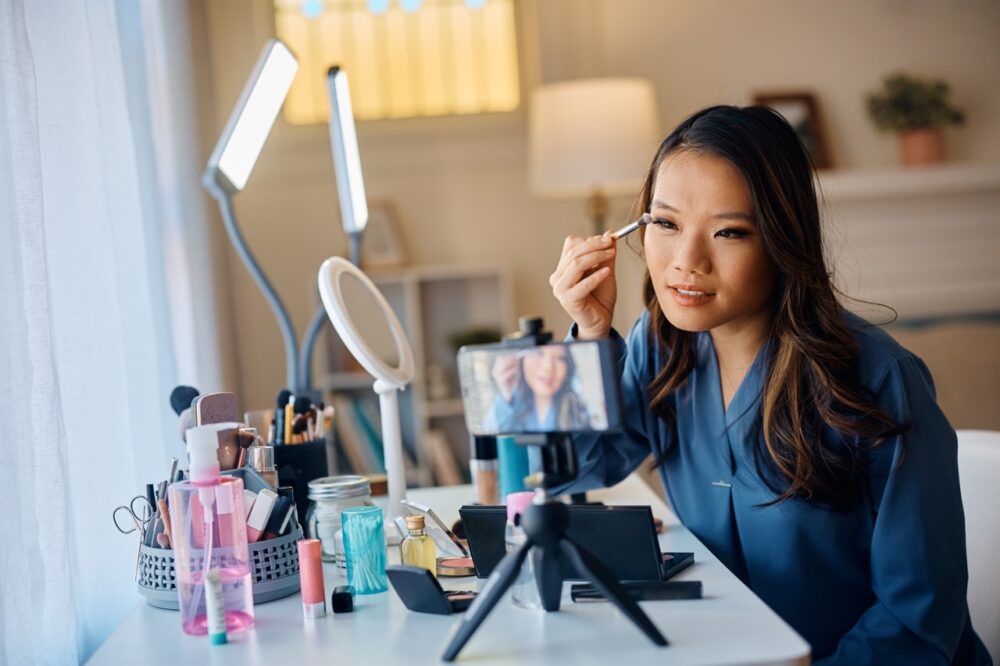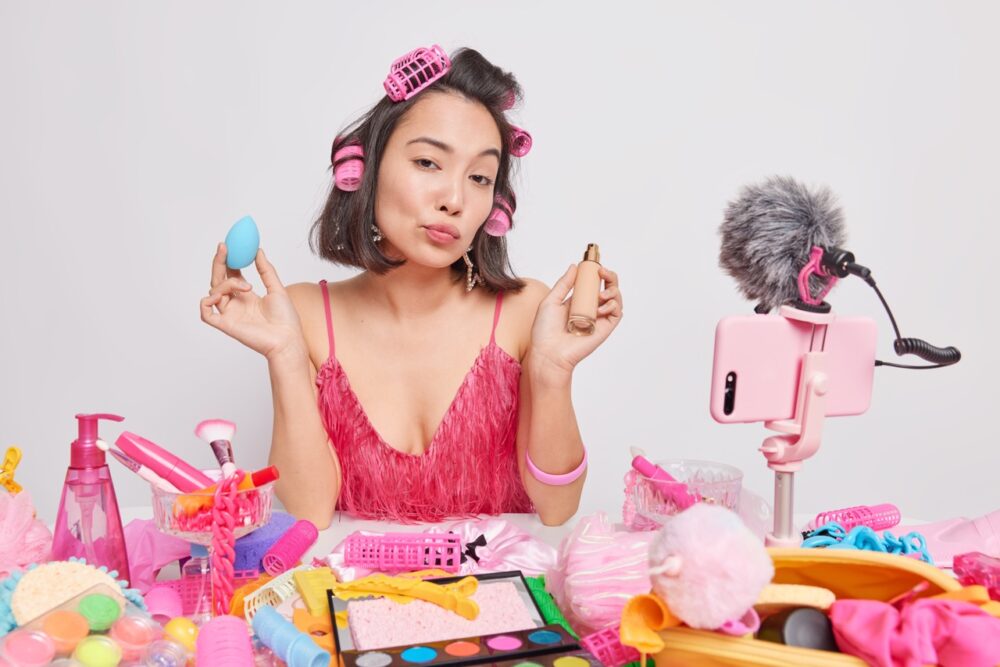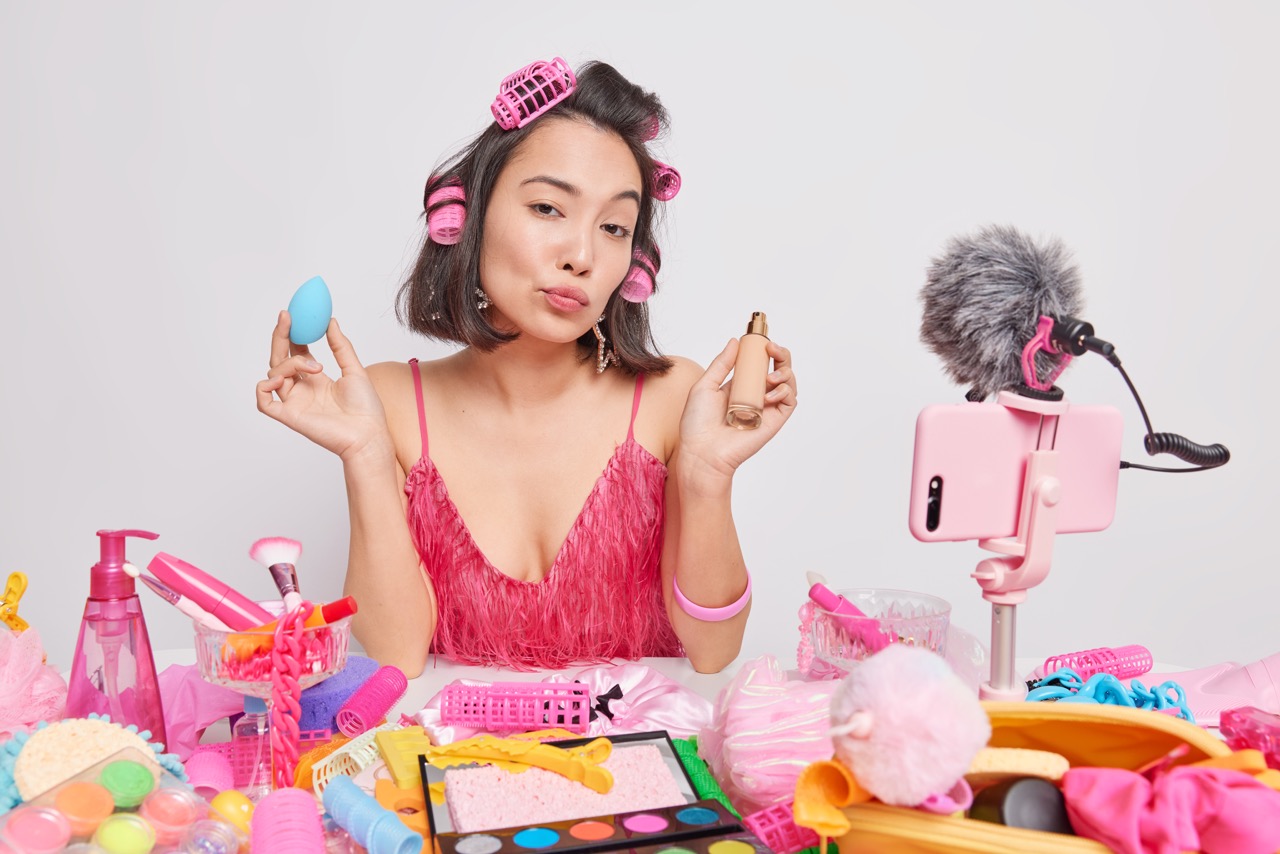If you want actual examples of social media shaping consumer interests, look no further than the beauty industry, or more specifically, the glossy world of #BeautyTok. The hashtag has 5.4 million posts on TikTok at the time of writing, allowing influencers to share tips and recommendations with newbies and enthusiasts alike.
These digestible yet informative clips have given the sector a bold new look. GWI data shows the number of UK beauty fans using TikTok for product or brand research has more than tripled since 2020, a sign that the industry’s leading by example when it comes to connecting with their audiences.

Companies like Huda, Fenty, and Rare Beauty have already set the bar high with their TikTok campaigns, tapping into some of the trends we’re about to gloss over. And others shouldn’t sit back and let the “lipstick effect” do all the work.
Without further ado, here’s how you can go about your next glow-up.
The ‘skinfluencer’ effect
Thanks to social media, people don’t have to rely solely on magazines or search engines for beauty advice. They can find someone who shares their specific skin complaints or makeup goals, and get an honest perspective on what worked and what didn’t. In other words: video-based apps eliminate some of the risk involved when trying new products.
Short-form video is turning heads in many sectors, but the opportunity for beauty is huge. Skincare is what UK Gen Z/millennial women are most likely to have last bought after seeing an influencer endorsement, behind a fairly long list of items including clothing, haircare, and accessories. And when asked what drives them to buy from an influencer, UK beauty buyers stand out most for citing product demos, which rank ahead of an influencer’s expertise and discount codes.
Younger audiences are keen to fill their cosmetic bags too. In case you haven’t heard the term ‘Sephora kids’, it describes the teens checking out or buying pricey Sephora goods. It’s a hint that brands should start building bonds with Gen Alpha, many of whom are starting to get a sense of what’s on offer. In fact, 45% of UK girls aged 12-15 say they’ve watched a makeup video in the last week, up from 36% in 2021.
Beauty businesses that aren’t leveraging influencer marketing are ultimately missing a spot, as public figures with relevant stories or struggles can help companies remove their commercial layers, and audiences to connect with the fresh-faced brand underneath.

Shoppers want transparency
As the world’s first Miss AI is crowned and fashion companies release AI-created campaigns, the beauty sector now faces an important question: are AI influencers for them?
The truth is, it depends on the brand, as well as the industry. Dove’s ‘The Code’ campaign targets those anxious about AI’s impact on beauty perceptions; and with good reason – 43% of UK Dove buyers say they’d like content slightly or much less if they discovered it was made using generative AI.
Especially in the world of skincare, human perspectives matter. In order for AI-generated influencers to comment on what works for specific skin tones, conditions, and hair types, they’ll need to be heavily informed by real viewpoints. Plus, AI-generated content should be labelled as such, an idea that 83% of Brits are behind.
Inspo-driven searching is everywhere
Granted, TikTok is a hot topic in the beauty space right now, but it isn’t the only platform or feature worth flagging. For starters, the number of Brits using Instagram Reels is up by 60% since the end of 2020, and around 2 in 5 of those who consume them aren’t on TikTok. So, they reach a fairly unique group of viewers.
Then there’s Pinterest. Not only is it one of Gen Z’s fastest-growing apps, but 38% of UK Pinners use it for style, clothing, or beauty inspiration.
One of the ideas from the latest Pinterest Predicts, the platform’s annual trends report, is that aquamarine makeup “is back and bolder than ever”; and here’s why trending search terms are worth monitoring. After noticing that users were pinning pictures of the Beckhams in 90s parachute pants, Jaded London released their own modern version, selling well over 200,000 pairs.
The world of social media never sits still, and it can be challenging to keep up. While a third of Brits say they typically find new products via social media ads, recommendations, or pages, most beauty brands can’t afford to be everywhere at once.
They shouldn’t just jump on the latest and most colourful trends, but instead, take time to understand their audience. After all, beauty is in the eye of the beholder.
















